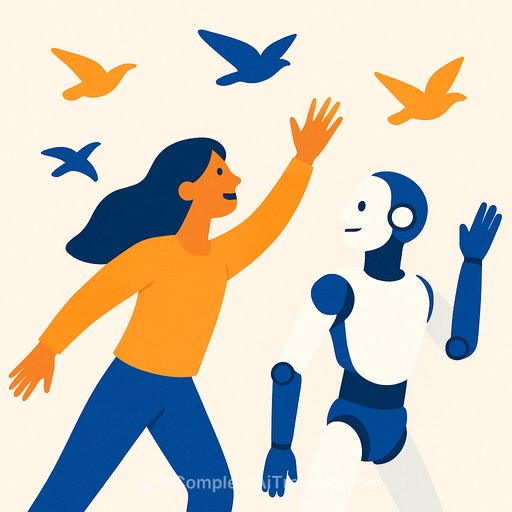Breaking Free: AI and the End of Work as Our Identity
We’ve been conditioned to define ourselves by what we do for a living. From childhood, the question “What do you want to be when you grow up?” sets the stage for a lifelong tie between identity and career. As adults, introductions often start with “What do you do?” rather than “Who are you?” This deep connection between job and self-worth can trap us in a cycle where work becomes the measure of value.
But what if AI changes that? The rise of automation threatens many jobs, stirring fear about a future without meaningful work. Headlines warn of a “useless class” and the loss of purpose when machines take over tasks. Yet, this fear overlooks an opportunity: AI could push us to rethink what truly defines us beyond our careers.
Work as Identity: A Cultural Trap
Our culture glorifies hustle and equates hard work with virtue. Many accept grueling hours, long commutes, and stressful roles just to hold onto job titles that impress others. Surveys reveal up to 37% of workers find their jobs meaningless, yet few dare to let go. We’ve internalized the idea that productivity equals purpose, making it hard to separate self-worth from work output.
This mindset leads to burnout and mental strain. When jobs feel pointless or unstable, it shakes the foundation of identity. The pandemic exposed how fragile this system is, showing that work isn’t always fulfilling or essential to who we are.
Younger Generations See Things Differently
Gen Z and Gen Alpha challenge this old narrative. They prioritize balance, mental health, and flexibility over climbing the career ladder. A recent survey found only 6% of Gen Z aim for leadership roles; most want meaningful work that doesn’t consume their lives. They embrace remote work and side hustles, rejecting the idea that constant hustle is the only path.
Gen Alpha, growing up with AI, doesn’t fear automation as much. They use technology naturally, seeing it as a tool rather than a threat. Their approach—sometimes called “strategic laziness” or quiet quitting—is less apathy and more a refusal to buy into outdated work ideals. They value creativity, relationships, and wellbeing over traditional job titles.
AI’s Role: Forcing a New Perspective
AI could be the nudge society needs to disentangle identity from employment. By automating repetitive and meaningless tasks, it opens space for people to explore passions, creativity, and connection without financial anxiety. Concepts like universal basic income could make this shift possible, allowing us to live without tying self-worth to a paycheck.
Some worry this could lead to idleness or chaos. But history shows leisure often sparks innovation—think Renaissance artists or modern sabbaticals. The real risk lies in clinging to a system that values output over human value.
Ultimately, AI might help us remember that we are more than our jobs. It invites a future where work is just one part of a richer, more balanced identity.
- Society equates identity with jobs, leading to burnout and stress.
- Gen Z and Gen Alpha seek balance and purpose beyond career titles.
- AI automation may free us from overidentification with work.
For those interested in understanding how AI is changing the workplace and how to adapt, resources like Complete AI Training offer up-to-date courses on AI skills and automation.
Your membership also unlocks:


